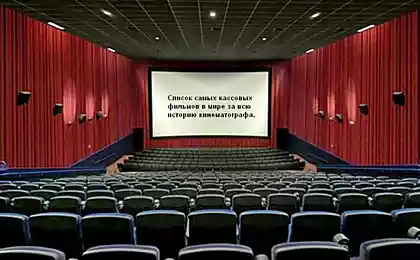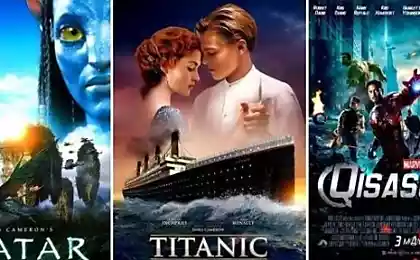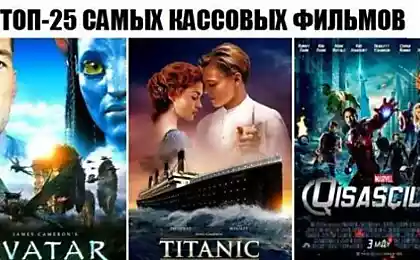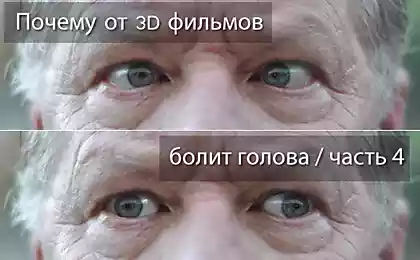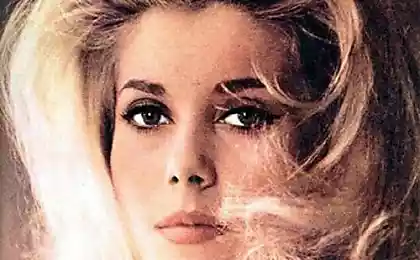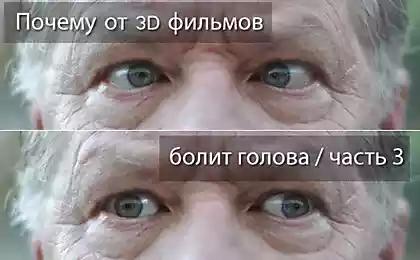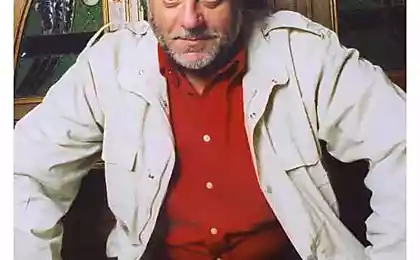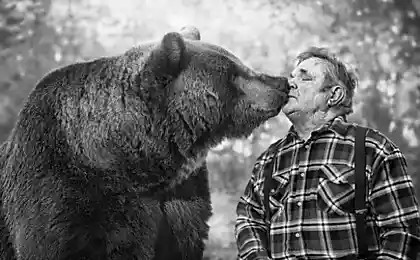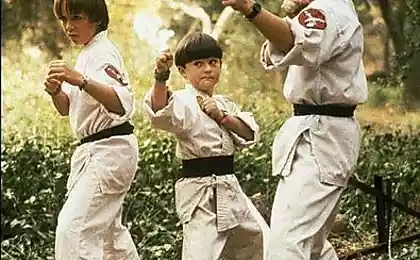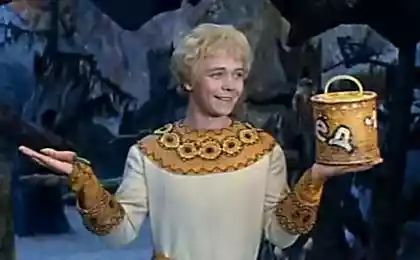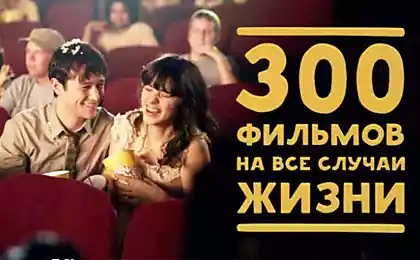1044
Duplicating Film
Dubbing is a special kind of film and cinema. Today, along with the author, we go to the famous studio "Pythagoras" in which all duplicated many well-known films, and learn the whole process of hard work localizers. The decision to release a localized (ie, translated into the appropriate language) film take rightholders.
The studio "Pythagoras" gets the whole film production either directly from the world's largest film companies (Disney, Warner Bros., Sony, Paramount, XXth CenturyFox, Universal), or through distributors who purchase films for distribution in Russia.
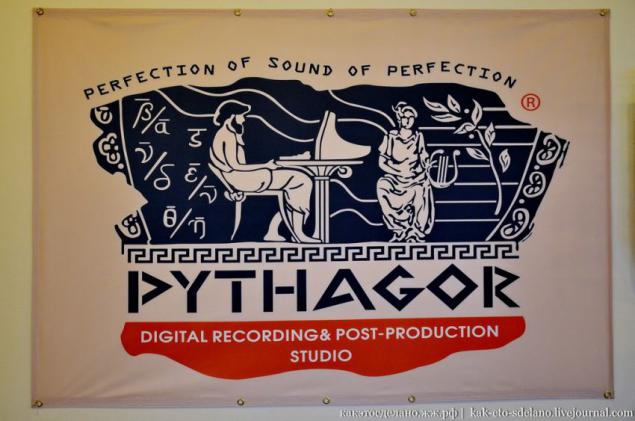
Depending on the expected rental fees from the decision on what kind of localization used to familiarize the audience with the film Russian: full dubbing, voice-over sound system, subtitling or interpretation. Dubbing - the only kind of localization, in which the viewer is unable to hear the original voice actors, as there is a complete replacement of the track in a foreign language in the Russian-speaking.
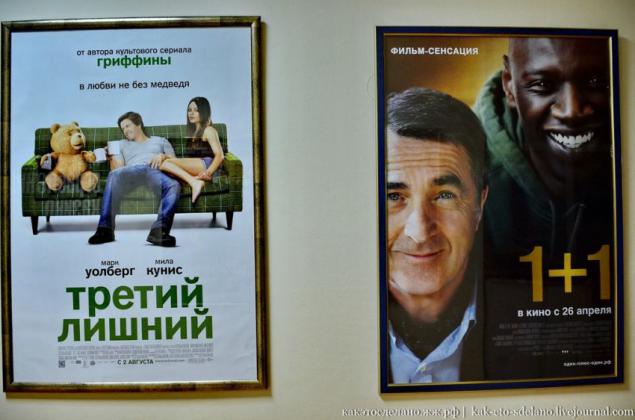
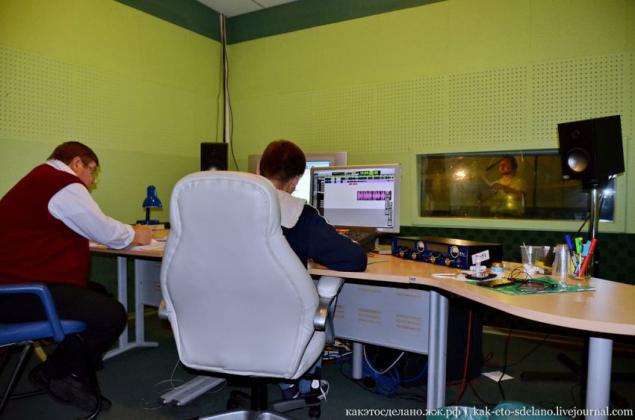
2. Subtitle. The advantage of the subtitle that you can without any hindrance to hear the original voice actors. However, read the fine print and pretty at the same time enjoy the performance of the actors, the beauty of the frame, etc. the matter is quite problematic. In addition, there are technical limitations on the number of symbols in a frame and time of demonstration. So that the transfer in any case, a trimmed and without nuance.
Subtitles often make the films in limited release, and purely in order to save. Earlier subtitles "burning through" on the film in the manufacture of copies. Nowadays, digital film copies everything is much simpler: there are special programs, allows you to mount the text in the video. Often in the manufacture of subtitles is not even a full translation of the film, and translated subtitles only made by the manufacturer of the film in the original language or the universal English, say, the Nordic countries.
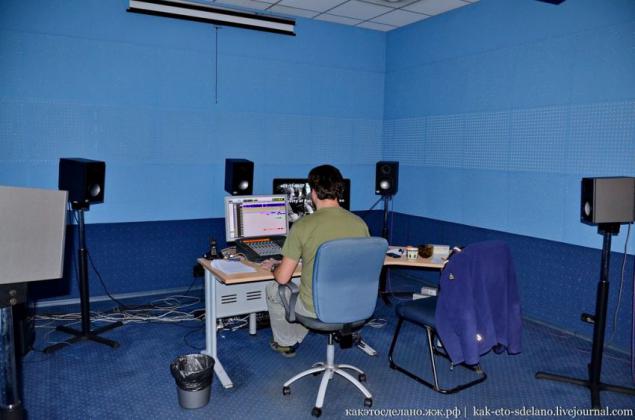
3. Voice-over sound system. In this case, the translated text is read by actors "behind the scenes" at the same time as the original. This sound system can participate any votes, but usually they are not greater than 8. The advantage of this localization is possible to consider that the translator is not particularly limited in the choice of words, neither in quantity nor on the articulation (good voiceover actor can cram into two times more text than the actor says in the frame).
However, it must be reconciled with the fact that at the same time heard the two dialogue tracks - offscreen Russian and original. At the same time the two voices "playing", which also can not be annoying. In the case of pirated "voiceovers" for Russian-language speakers were heard, "pinch" the entire original soundtrack of the film (voice, music and effects).
As a result, the film is at best only a "general impression", and that if it does not spoil the boring non-professional speaker, and even with some exotic accent or "accent". When the "right" voice-over studio sound system franchisor provides all the raw materials and the film is reduced in view of re-occurrence of Russian narration track.
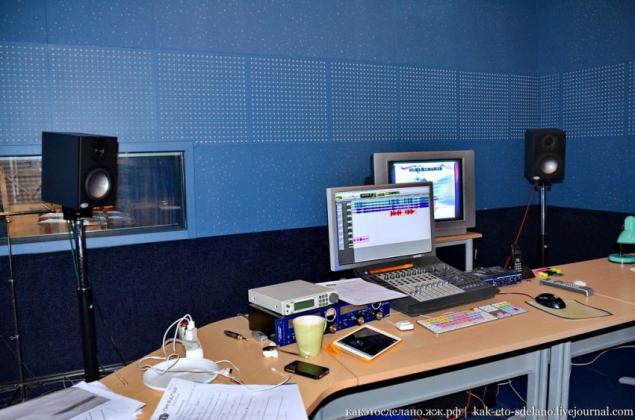
When off-screen sound system in addition to the interpreter, actors and sound engineer at the console, and the director needs sound system, which ensures that the actors do not get out of the way, when we speak of the different characters, properly pronounce the text did not make passes, etc. However, if it is to do everything "in the mind". Since the "hook up" (especially on voices 1-2) - the cheapest and seemingly easy way to localization, it is here that large number of hacks and "scribblers". Internet blocked any kind of "nakolenochnymi" voiceovers that can satisfy only the most that neither is unpretentious crowd.
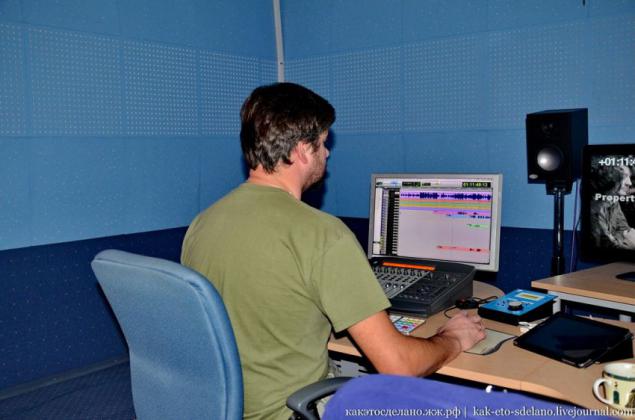
4. Dubbing (replacing the original dialogue track Russian-speaking). This - "aerobatics" localization! Dublyazhnoy group faced with so many conditions and limitations that it can be safely called a separate art form. So many years of raging debate about which is better - or the voice-over dubbing, is under a much reason much debate about which is better - a ballet or opera.
Ideally, the audience should get the impression that the character on the screen says in Russian. To achieve this simple at first glance goal nearly a month working group of creative interpreter, Stacker (author synchronous text), dubbing director, assistant director, recording engineer, sound re-recording. And, of course, up to two dozen actors.
Photos on the wall of the studio. Here are all the actors and speakers who participated in the dubbing studio.
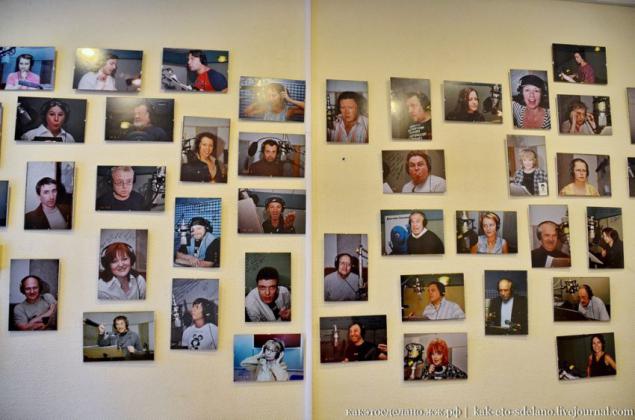
Problems on the thorny path of dubbing a lot. If you compare for example the linguistic features of English and Russian, it appears that the English words on average almost twice as short as Russian, and speak English and the Americans quickly. It turns out that the Russian text should be much shorter and ёmche. This problem is solved in turn, translator and author of a synchronous text ("stacked"). Next - articulation. When a person wide open mouth utters the word "ear", the viewer has some discomfort. For that such was not responsible stacker.
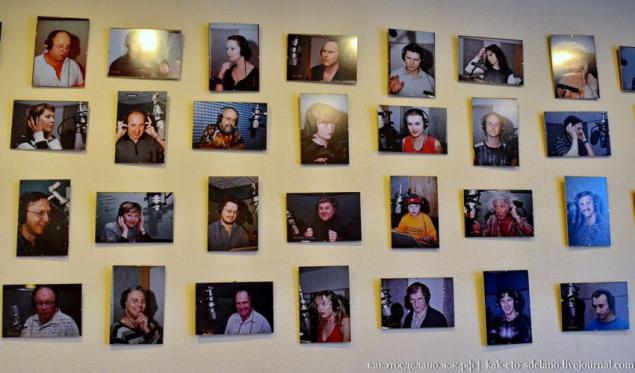
Then comes the turn of the director. He should not just pick dublyazhnyh artists have voices and energy corresponding to the original actors, but also provide the same brilliant performance roles. And this is - dozens and dozens of hours of work in the studio. Actors are recorded one at a time, even in scenes where they talk to each other. This is necessary for the production of multi-channel sound track, but creates additional difficulties for the director.
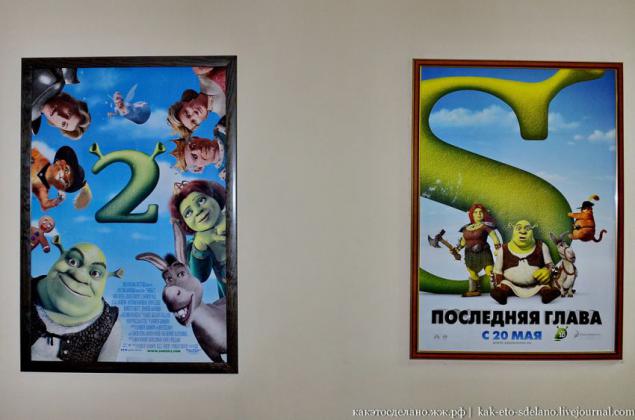
Probably many of you pay attention to that when watching a movie in the cinema sometimes it seems that talk to each other as if the characters do not hear the interlocutor? This is - a classic case of shortcomings of dubbing director.
Working with the "stars" who give voice to foreign films - a separate and serious topic (and sometimes headache) in the work of the director.
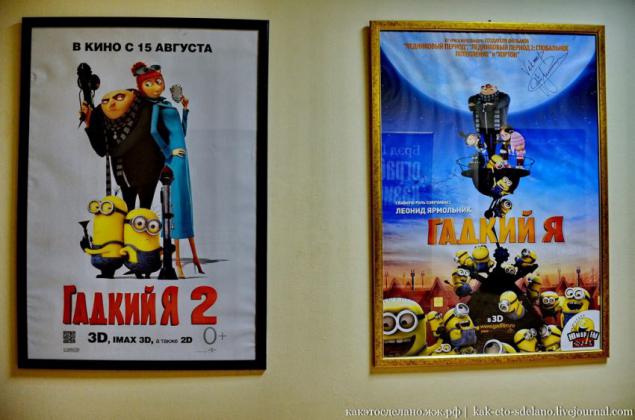
However, not the entire movie is written by Russian-speaking actors alone. Crowd (in dublyazhnom slang "gur-gur" or simply "Mountains") is written 5-10 artists at several microphones at the same time requires a certain skill and skill, as the text for "gurschikov" Nobody writes. They know themselves as "sound" market, the airport, the emergency room in a hospital, a school, a stadium, a police station.
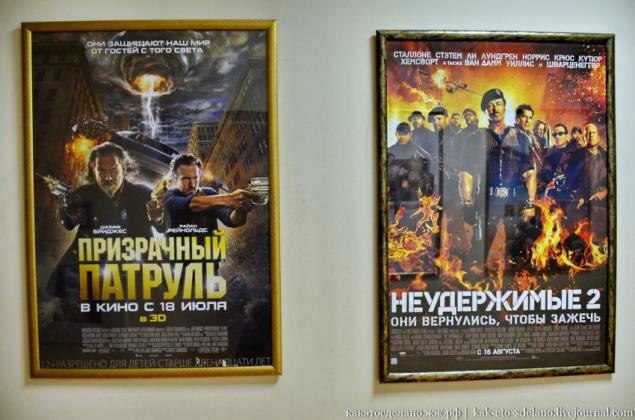
After recording and editing all the dialogues, they must keep with the original music and effects, which gives the right holder. This deals with sound dubbing. Task - exactly recreate the original soundtrack of the film, but only with Russian dialogue.
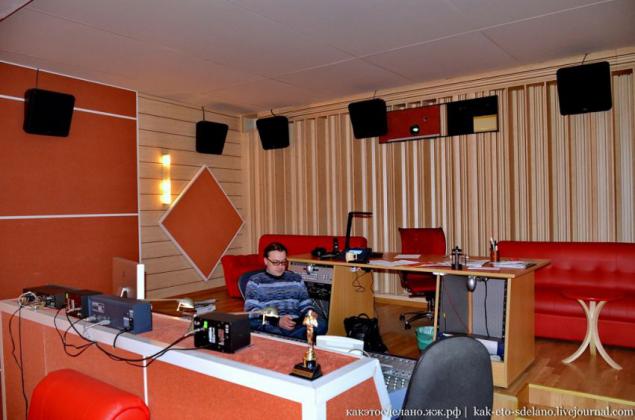
One of the cinema studio "Pythagoras." It takes note of the various audio tracks to show the film in the cinema.
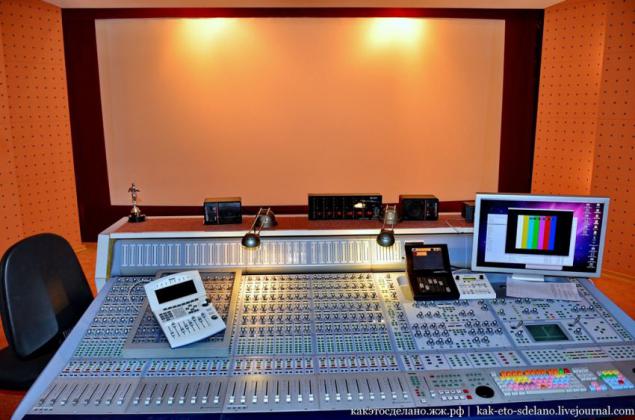
Well, then they get into the cinemas
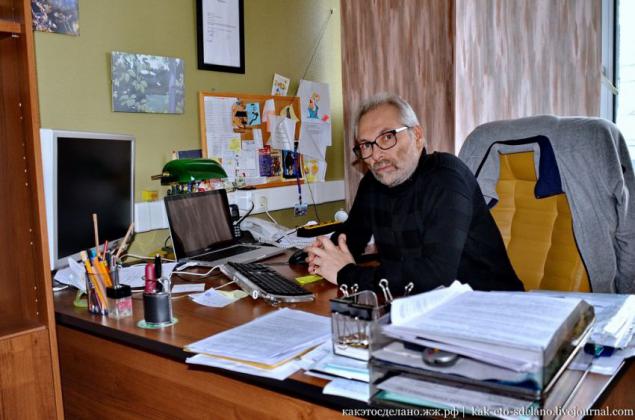
Source:
The studio "Pythagoras" gets the whole film production either directly from the world's largest film companies (Disney, Warner Bros., Sony, Paramount, XXth CenturyFox, Universal), or through distributors who purchase films for distribution in Russia.

Depending on the expected rental fees from the decision on what kind of localization used to familiarize the audience with the film Russian: full dubbing, voice-over sound system, subtitling or interpretation. Dubbing - the only kind of localization, in which the viewer is unable to hear the original voice actors, as there is a complete replacement of the track in a foreign language in the Russian-speaking.


2. Subtitle. The advantage of the subtitle that you can without any hindrance to hear the original voice actors. However, read the fine print and pretty at the same time enjoy the performance of the actors, the beauty of the frame, etc. the matter is quite problematic. In addition, there are technical limitations on the number of symbols in a frame and time of demonstration. So that the transfer in any case, a trimmed and without nuance.
Subtitles often make the films in limited release, and purely in order to save. Earlier subtitles "burning through" on the film in the manufacture of copies. Nowadays, digital film copies everything is much simpler: there are special programs, allows you to mount the text in the video. Often in the manufacture of subtitles is not even a full translation of the film, and translated subtitles only made by the manufacturer of the film in the original language or the universal English, say, the Nordic countries.

3. Voice-over sound system. In this case, the translated text is read by actors "behind the scenes" at the same time as the original. This sound system can participate any votes, but usually they are not greater than 8. The advantage of this localization is possible to consider that the translator is not particularly limited in the choice of words, neither in quantity nor on the articulation (good voiceover actor can cram into two times more text than the actor says in the frame).
However, it must be reconciled with the fact that at the same time heard the two dialogue tracks - offscreen Russian and original. At the same time the two voices "playing", which also can not be annoying. In the case of pirated "voiceovers" for Russian-language speakers were heard, "pinch" the entire original soundtrack of the film (voice, music and effects).
As a result, the film is at best only a "general impression", and that if it does not spoil the boring non-professional speaker, and even with some exotic accent or "accent". When the "right" voice-over studio sound system franchisor provides all the raw materials and the film is reduced in view of re-occurrence of Russian narration track.

When off-screen sound system in addition to the interpreter, actors and sound engineer at the console, and the director needs sound system, which ensures that the actors do not get out of the way, when we speak of the different characters, properly pronounce the text did not make passes, etc. However, if it is to do everything "in the mind". Since the "hook up" (especially on voices 1-2) - the cheapest and seemingly easy way to localization, it is here that large number of hacks and "scribblers". Internet blocked any kind of "nakolenochnymi" voiceovers that can satisfy only the most that neither is unpretentious crowd.

4. Dubbing (replacing the original dialogue track Russian-speaking). This - "aerobatics" localization! Dublyazhnoy group faced with so many conditions and limitations that it can be safely called a separate art form. So many years of raging debate about which is better - or the voice-over dubbing, is under a much reason much debate about which is better - a ballet or opera.
Ideally, the audience should get the impression that the character on the screen says in Russian. To achieve this simple at first glance goal nearly a month working group of creative interpreter, Stacker (author synchronous text), dubbing director, assistant director, recording engineer, sound re-recording. And, of course, up to two dozen actors.
Photos on the wall of the studio. Here are all the actors and speakers who participated in the dubbing studio.

Problems on the thorny path of dubbing a lot. If you compare for example the linguistic features of English and Russian, it appears that the English words on average almost twice as short as Russian, and speak English and the Americans quickly. It turns out that the Russian text should be much shorter and ёmche. This problem is solved in turn, translator and author of a synchronous text ("stacked"). Next - articulation. When a person wide open mouth utters the word "ear", the viewer has some discomfort. For that such was not responsible stacker.

Then comes the turn of the director. He should not just pick dublyazhnyh artists have voices and energy corresponding to the original actors, but also provide the same brilliant performance roles. And this is - dozens and dozens of hours of work in the studio. Actors are recorded one at a time, even in scenes where they talk to each other. This is necessary for the production of multi-channel sound track, but creates additional difficulties for the director.

Probably many of you pay attention to that when watching a movie in the cinema sometimes it seems that talk to each other as if the characters do not hear the interlocutor? This is - a classic case of shortcomings of dubbing director.
Working with the "stars" who give voice to foreign films - a separate and serious topic (and sometimes headache) in the work of the director.

However, not the entire movie is written by Russian-speaking actors alone. Crowd (in dublyazhnom slang "gur-gur" or simply "Mountains") is written 5-10 artists at several microphones at the same time requires a certain skill and skill, as the text for "gurschikov" Nobody writes. They know themselves as "sound" market, the airport, the emergency room in a hospital, a school, a stadium, a police station.

After recording and editing all the dialogues, they must keep with the original music and effects, which gives the right holder. This deals with sound dubbing. Task - exactly recreate the original soundtrack of the film, but only with Russian dialogue.

One of the cinema studio "Pythagoras." It takes note of the various audio tracks to show the film in the cinema.

Well, then they get into the cinemas

Source:

